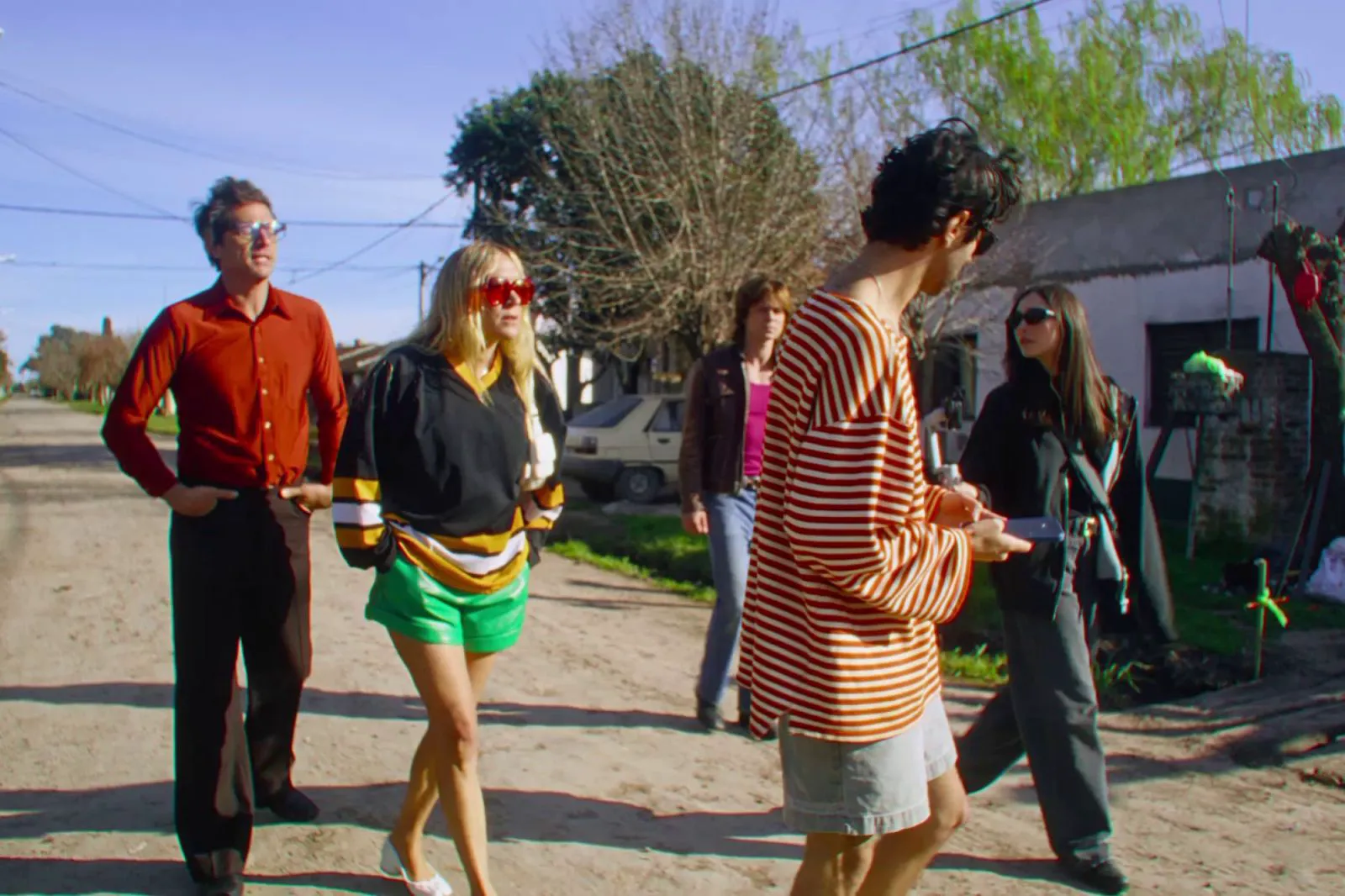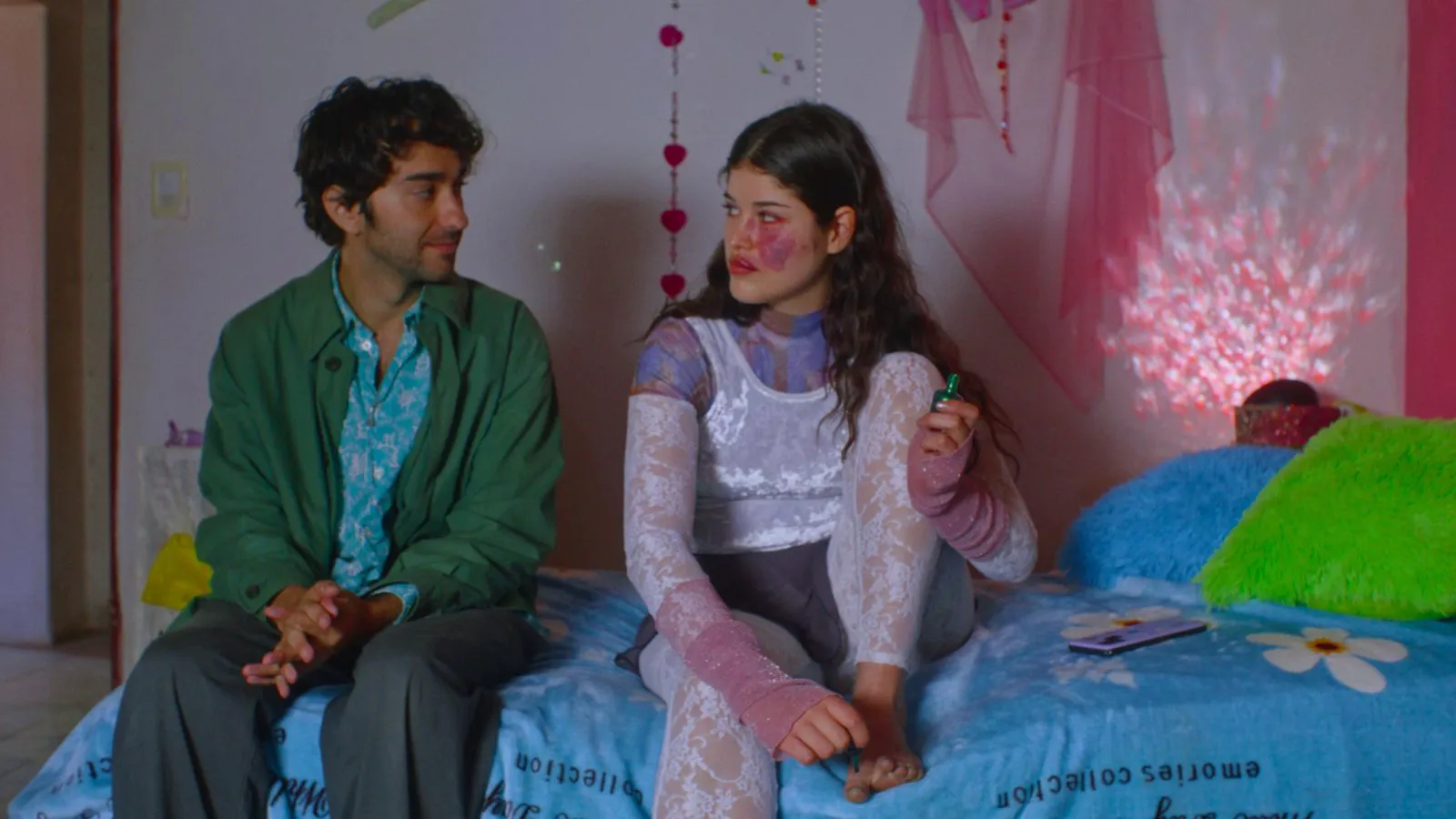Amalia Ulman is known not just as an up-and-coming director, but as an accomplished artist. With her performance-based social media hoaxes, installations, and video art, this talented woman burst onto the art scene in the 2010s. Ulman’s quest for a new visual language led her to cinema: in 2021, her directorial debut, “El Planeta,” premiered at Sundance, telling the story of a mother and daughter facing financial hardship. The film garnered critical acclaim and opened doors for Amalia in the industry. Four years later, she returned to Sundance with her second film, “Magic Farm.” While it received a more lukewarm reception, it attracted attention for its star-studded cast: Chloë Sevigny arrives in the Argentine countryside with a Miu Miu handbag, and Alex Wolff embodies incompetence and anxiety to perfection.

Chloë Sevigny as Edna in a still from “Magic Farm”
The Premise
A group of Americans travels to the small town of San Cristobal in Argentina. Their mission: to film a documentary about a musician known as Super Carlitos, famous for wearing rabbit ears. Problems arise as soon as they check into their hostel: the administrator can’t find their reservation in the system, but luckily, a couple of rooms are still available. The next day, the filmmakers discover that the locals know nothing about the eccentric singer, and that San Cristobal is a rather common name for towns in South America. Realizing they’ve come to the wrong country, the crew decides to improvise and, through conversations with the locals, comes up with a new theme for their show.

Alex Wolff as Jeff in a still from “Magic Farm”
Ulman’s Signature Style
As in her debut, Amalia Ulman plays one of the main roles in “Magic Farm.” She portrays Elena, a cinematographer and translator who, like Amalia herself, was born in Argentina and raised in Spain. Elena serves as a bridge between the two cultures: fluent in both languages, she helps the Americans connect with the Argentinians. It’s hard to separate Ulman from her artistic background: in her work, Amalia explores the relationship between reality and fiction (for example, in her performance “Excellences & Perfections”) and between two different cultures. On the one hand, she incorporates autobiographical elements into the film. On the other, she once again plays with blurring boundaries: Amalia simultaneously plays herself – a migrant who speaks two languages – but also embodies a completely different person. Elena is born somewhere at the intersection of personal experience and artistic fiction.

Guillermo Jacubowicz in a still from “Magic Farm”
Satire and Social Commentary
“Magic Farm” is rooted in irony and satire. Ulman isn’t afraid to mock her characters, diagnose contemporary society, and depict the faces of smug Americans exploring a foreign country for the sake of content. Unveiled arrogance and the pursuit of sensational material cloud the characters’ vision: the tourists fail to see a truly shocking news story that could bring in the coveted views and raise an important issue – the problem of healthcare in San Cristobal. The fact is that many residents have serious health problems due to toxic pesticides sprayed on the fields.
For most of the film, we watch the Americans languishing in a hostel without Wi-Fi, interacting and flirting with the locals, and trying to cobble together a pathetic video. Ulman, who is interested in the issue of class inequality, emphasizes how out of their element the film crew is: the New Yorkers risk experiencing culture shock from toilet problems or the need to catch a signal at the top of a tree. But don’t expect a coherent story from “Magic Farm”: the director masterfully creates the right mood but struggles with narrative construction. It seems that key ideas hang in the air, and plot lines are cut short.
Visuals Over Narrative
Speaking of “Magic Farm,” one cannot fail to mention the stylish visuals. As an artist, Amalia Ulman boldly experiments with form and angles: sometimes the camera is placed on animals, creating a sense of life on the screen, and sometimes what is happening resembles a mockumentary. In any case, the visual solutions turn out to be much more expressive than the drama – which, however, is logical, given Ulman’s career path. It’s not easy to love the satirical creation of the artist and filmmaker, but it’s equally difficult to deny the obvious: we are hearing a powerful voice of a generation, one that we will likely hear again.